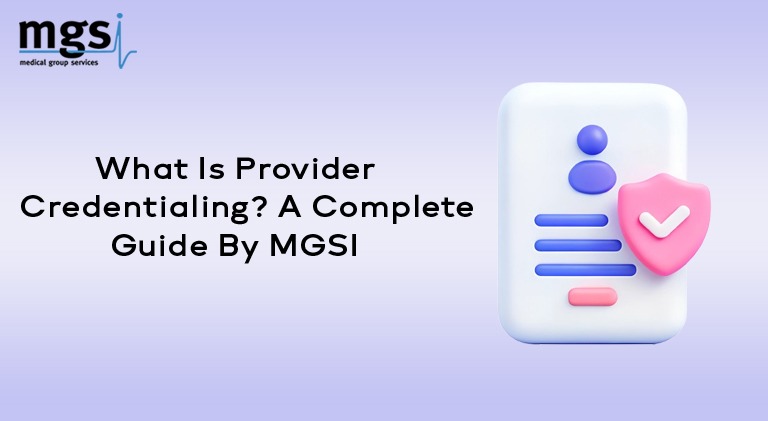
Trust and transparency have never been more critical in the healthcare environment today. That’s where provider credentialing enters the picture — it’s the indispensable process that makes sure healthcare providers are qualified, vetted, and prepared to provide quality care. At MGSI, we understand exactly how crucial proper credentialing is for hospitals, medical practices, and billing effectiveness.
Let’s break down what provider credentialing actually is and why it is important.
What Is Provider Credentialing?
Provider credentialing is the process of confirming the education, experience, and background of healthcare providers. These include physicians, nurse practitioners, physician assistants, and other licensed professionals.
The objective? To verify that a provider is professionally and legally qualified to provide medical care — and that they comply with the standards of insurance networks, hospitals, and regulatory agencies.
It’s like an intense background check that clears a provider to see patients and be reimbursed for services by insurance providers.
What Does the Credentialing Process Entail?
Here’s what usually happens during credentialing:
Application Submission – The provider completes a comprehensive application with information regarding their education, training, work history, licenses, board certifications, DEA registration, and malpractice insurance.
Primary Source Verification – This process entails verification of all the information from original sources — e.g., medical schools, licensing boards, and previous employers.
Credentialing Committee Review – Most organizations have a credentialing committee that examines the provider’s file and decides approval status.
Payer Enrollment – After being credentialed, the provider enrolls with insurance networks (Medicare, Medicaid, and commercial insurance plans) to start billing for services.
Why Is Credentialing So Important?
Credentialing is not paperwork — it’s patient protection, compliance, and the financial integrity of your practice. Here’s why it’s so important:
- Patient Safety – Credentialing ensures that only qualified health professionals treat patients.
- Prompt Reimbursements – Providers are unable to bill insurance plans without credentialing, which denies or postpones payment.
- Compliance with the Law – It assists practices in maintaining compliance with federal and state laws.
- Practice Reputation – Credentialing establishes credibility and trust with patients, payers, and partners.
How MGSI Can Assist with Credentialing
At MGSI, we know the credentialing process can be painstakingly time-consuming and complicated. That’s why we provide comprehensive end-to-end credentialing solutions to make things easier for your practice. Either you’re recruiting a new provider or require support with maintaining credentialing compliance, we have your back.
What we manage on your behalf:
- New provider enrollments
- CAQH profile management
- Updates and re-credentialing
- Insurance panel memberships
- Follow-up and payer interaction
Our professional staff guarantees accuracy, speed, and peace of mind — so you can devote your time to patient care, not paperwork.
Final Thoughts
Provider credentialing is an unsung task that appears to go on behind the scenes, but it is really the cornerstone of a thriving, compliant, and revenue-generating practice. Make MGSI your go-to partner in getting you through the physician credentialing process from beginning to end.
